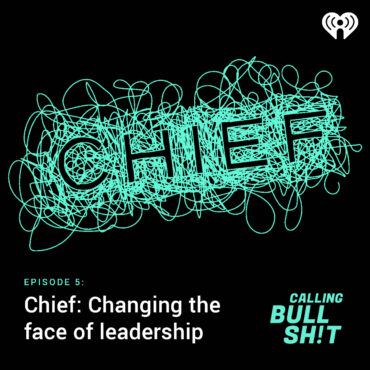
Chief: Changing the face of leadership
A conversation with Chief co-founders Lindsay Kaplan and Carolyn Childers about their quest to drive more women to the top of big companies and give them the tools and the […]
 play_arrow
play_arrow
Whistleblowers: A very special kind of bs detector Calling Bullsh!t
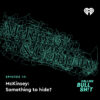 play_arrow
play_arrow
McKinsey: Something to hide? Calling Bullsh!t
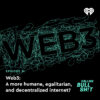 play_arrow
play_arrow
Web3: A more humane, egalitarian, and decentralized internet? Calling Bullsh!t
Calling Bullsh!t November 15, 2022 2938 2
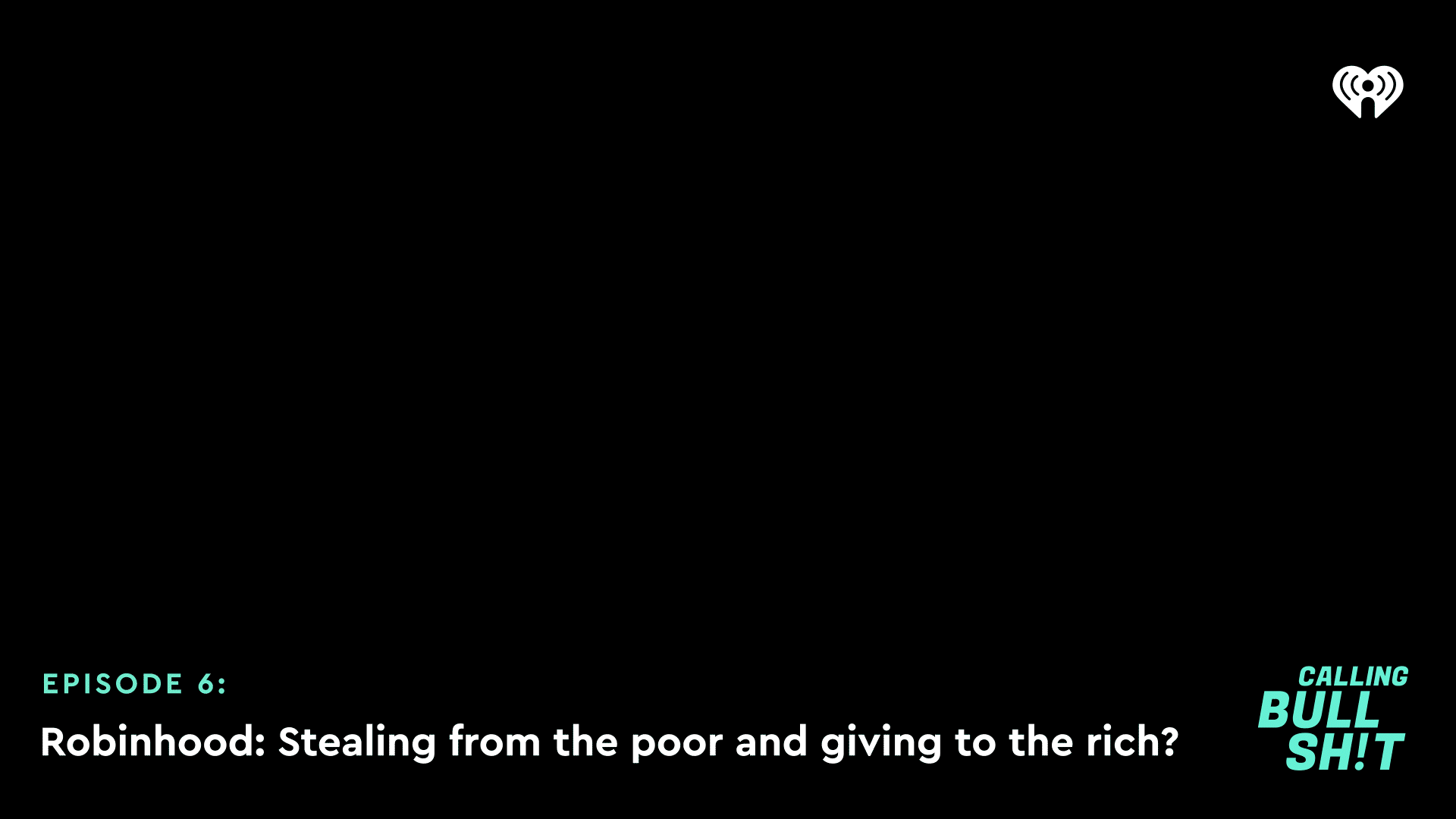
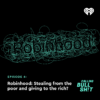 play_arrow
play_arrow
Robinhood: Stealing from the poor and giving to the rich?
Calling Bullsh!t

Assistant Professor in Community, Family, and Addiction Sciences at Texas Tech University
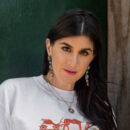

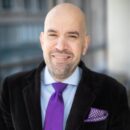
Stated purpose: To democratize finance for all.
Robinhood makes investing free to users and is just as easy as downloading a game onto your phone.
Individual investors don’t have to pay to trade because big trading houses called “market makers” give Robinhood a small amount of money for every single trade made on the app. The more you trade, the more money they make.
But is Robinhood really just encouraging those with little knowledge of the stock market to make risky bets so they profit?
“I encourage people to take charge of their wealth. I encourage people to learn more about the stock market. But I also think there needs to be clarification on the terminology. If you’re buying stocks, you are gambling.”
– Devin Mills
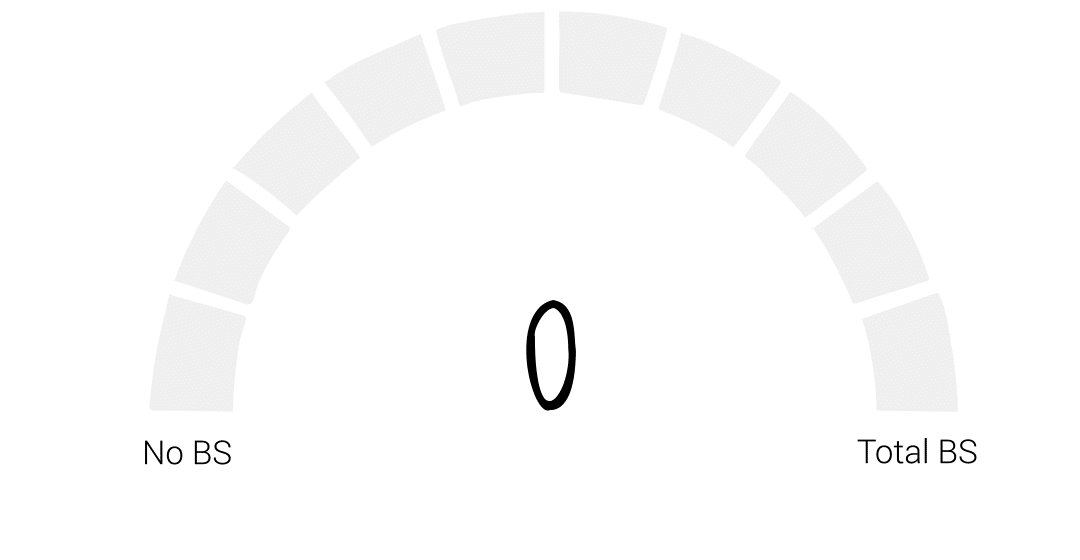
SFX: Scoring to this next sentence here- morning woods sounds followed by mounting/galloping horses, a hunting horn, a wagon drives down a road – British vibes
TY MONTAGUE (VO)
The Legend of Robin Hood begins in Sherwood Forest, with Rob and his merry men reappropriating taxes unjustly collected by the Sheriff of Nottingham
SFX: Cut out
TY MONTAGUE (VO)
Oh sorry, wrong Robinhood.
SFX: Are replaced with video game-style tech music and low-level NYC wall street ambi. The wall street ambi fades out quickly – the music maybe stays with us longer.
TY MONTAGUE (VO)
The story of THIS Robinhood begins in New York City, where two recent Stanford graduates Vladimir Tenev and Baiju Bhatt, toil away building software for high-frequency traders on Wall Street. Inside their office, computers hum and keyboards click, while outside…
[SOT Occupy Wall Street Protests] Occupy Wall Street All day all week! Occupy Wall Street All day all week! Protester 1: I’m here myself as a free individual. To humanize the markets and to make wall street, hear the sound of what democracy means, Protesters: What kinda power? People power!
TY MONTAGUE (VO)
Inspired by the Occupy Movement to help bridge the economic divide and democratize finance, Tenev and Bhatt designed an app that let anyone access the stock market – for free.
And they named it for everyone’s favorite egalitarian outlaw, Robin Hood.
SFX: Around “Robinhood” – The hunting horn from the first sentence put through a filter/made electronic then quick fade out
TY MONTAGUE (VO)
Welcome to Calling Bullshit, the podcast about purpose-washing…the gap between what companies say they stand for and what they actually do — and what they would need to change to practice what they preach.
I’m your host, Ty Montague. I’ve spent over a decade helping companies define what they stand for — their purpose — and helped them to use that purpose to drive transformation throughout their business.
Unfortunately, at a lot of organizations today, there’s still a pretty wide gap between word and deed. That gap has a name: we call it Bullshit.
But — and this is important — we believe that Bullshit is a treatable condition. So when the BS detector lights up, we’re going to explore things that a company should do to fix it.
TY MONTAGUE (VO)
Robinhood’s purpose is to “democratize finance for all”. They say they aim to make investing friendly, approachable, and understandable for newcomers and experts alike.
Employing a business model called Payment for Order Flow, Robinhood makes investing free to users and just as easy as downloading a game onto your phone.
And the app doesn’t just provide access to the traditional markets. In June 2018, Robinhood leveled up to include commission-free Crypto trading– making Bitcoin, Etheruem, and others available to just about anyone.
TY MONTAGUE (VO)
However as popularity and download numbers grew, so did criticism.
[SOT ABC Gamification] Massachusetts regulators are accusing Robinhood of what they call aggressive tactics in marketing inexperienced investors using gamification to manipulate those customers and failure to prevent outages on that trading platform this year. In one example, Robin Hood allowed a Massachusetts user with no experience to make more than 12,000 trades in just six months. In a complaint this morning, the state highlights Robin Hood’s revenue model of payment for order flow.
TY MONTAGUE (VO)
This is a key point: Payment for Order Flow is how Robinhood makes money even though the app itself is free to users. Individual investors don’t have to pay to trade because big trading houses called “market makers” give Robinhood a small amount of money for every single trade made on the app. The more you trade, the more money they make.
[SOT James Royal] That’s the misalignment that drives the entire conundrum here. Robinhood wants people to trade. It’s absolutely in the worst interest of clients.
TY MONTAGUE (VO)
The more you trade, the more likely you are to lose money. Study after study has shown that “buy and hold” is a much better investment strategy. And critics and lawmakers raised the red flag, saying Robinhood was designed like a game in order to hook first-time investors, and then capitalize on their inexperience.
[SOT ABC Gamification] Regulators also point to incentives like confetti popping up on screens after trades and offers for Robinhood customers who are more active on that app move up on wait lists for new products.
TY MONTAGUE (VO)
In an attempt to quell the backlash, Robinhood actually changed some of their graphics. But critics were unimpressed.
[SOT Charles Duhigg] It’s absolutely gamification. They have leaderboards. You can win points. They have competitions on, on, on the site. The only thing that they’ve removed is that you don’t get confetti now on your screen when your stock goes up. Robin Hood’s big claim to fame is that they’ve democratized access to finance, but I think they’ve democratized it the same way that Purdue AC democratized access to Oxycontin. Simply making something easier to buy does not mean that it is therefore a good idea to buy it.
TY MONTAGUE (VO)
SFX: Music bed under these upcoming SOTs
But Robinhood continued to allow anyone the freedom to buy whatever stock they pleased, until the Game Stop situation in early 2021
[SOT ABC] It’s being sort of billed by the people who are doing it as a David versus Goliath thing. Right? So you have this army of small traders who are using a, a Reddit message board called wall street bets and they’re putting pressure on the shorts sellers of GameStop.
[SOT CNN] This looks like a move by an outfit called Robinhood– which is supposed to be taking from the rich and giving to the poor– and doing exactly the opposite.
[SOT Fox news] The action is so wild that TD Ameritrade and Robinhood have restricted trading of these stocks.
[SOT Trevor Noah] Traders on Reddits, sent the stock soaring this week causing billions in losses for the hedge funds that bet against the video game retailer stock. And today wall street decided enough was enough.
TY MONTAGUE (VO)
Declaring certain stocks off-limits made the platform look ominously undemocratic.
SFX: music ends here to give us a second to transition signal a new chapter
TY MONTAGUE (VO)
And while the app makes complex transactions frictionless, understanding those transactions can be hard, especially for beginners. This lack of clarity can have terrible consequences.
The most tragic of these occurred in 2020 when Alex Kearns, a college student from Illinois interested in investing, was granted approval by Robinhood to trade options… a very risky thing for even professional investors. Because of the interface, he mistakenly thought he owed $730,000 that he didn’t have. With only a few thousand dollars in his bank account, he ended his own life. The note he left said “I had no clue what I was doing”. His family brought a lawsuit against the company.
The Financial Industry Regulatory Authority said that Robinhood had “failed to exercise due diligence” for years when approving options trades. They fined Robinhood a $70 million dollars– the biggest fine in the authority’s history. This and the lawsuit by the Kearn’s family were settled just before Robinhood went public in the summer of 2021.
TY MONTAGUE (VO)
Robinhood says their purpose is to democratize finance for all. To make investing friendly, approachable, and understandable for newcomers and experts alike.
But is making investing free through an app the same as democratization? It feels like gamifying the stock market is almost making it TOO easy.
Researching this further, I found just the person to help me understand the intersection of gamification, investing and gambling. So I called him up.
SFX: Fade in a music bed here to bring us into the interview
TY MONTAGUE
Folks. I am excited to introduce Dr. Devin Mills, Devin. Thanks for being here and, uh, welcome to calling bullshit.
DEVIN MILLS
It’s great to be with you, Ty.
TY MONTAGUE
So before we get into Robinhood, I’d love it. If you could just tell us a little bit about your background and the work that you do.
DEVIN MILLS
Sure. Sure. Uh, so I’m, uh, assistant professor at Texas Tech University in the, uh, Community, Family, and Addiction Sciences department. Uh, my research is on non-substance use disorders, primarily video gaming and gambling, and, uh, with regards to gambling, I also look at cryptocurrency trading and risk-taking behaviors in financial markets.
Looking at it from the behavioral side of things, trying to understand exactly, uh, how people can become obsessed with it, how people can start to internalize more of a problematic trading pattern.
TY MONTAGUE
Mm, fascinating. Okay. would you take a run at defining that word for us? Gamification.
DEVIN MILLS
Sure. I, I think the simplest way of defining it, is to employ, game design, uh, to an area that doesn’t necessarily have, uh, games. you could not say that we’re gamifying the NFL. For instance, the NFL football is a game. So that wouldn’t necessarily. Yeah, so that wouldn’t work, but gamifying learning in a way, uh, that is something that education has done. And that’s kind of, the roots of gamification has been in the education domain.
TY MONTAGUE
Right. And, and so the point of it is to essentially make the subject matter, stickier, more engaging, more, uh, fun.
DEVIN MILLS
All of those things, getting someone interested in the topic area and making it more of a competition, um, giving someone an objective, a quest, uh, but there’s also the gamification in terms of the rewards piece. And I think that’s where a lot of the literature, a lot of the mainstream media has kind of focused more, especially as applies to some of these mobile applications is the idea of rewarding individuals in terms of badges and whatnot, kind of the boy Scouts mentality of, uh, keep on rewarding individuals for their acts of service and their acts of knowledge.
TY MONTAGUE
Okay. So let’s yeah. Let’s turn to Robinhood. would you say that the design of the Robinhood app is gamified?
DEVIN MILLS
They used to have the confetti, once you made a trade, uh, whether that was selling or buying. I haven’t seen a lot of rewards, that doesn’t necessarily mean that individuals don’t feel rewarded in some way,
TY MONTAGUE
So confetti would be an example of a, a, a kind of, a gamified aspect of the app experience.
DEVIN MILLS
Yeah, but I would also, I think the, the idea that that’s the only way in which humans interpret a reward, is kind of a misnomer, right? when their portfolio is going up a hundred dollars, $200, or maybe it’s going down 200, $300. Uh, um, And I think the human brain will interpret that as something to chase something to, continue.
TY MONTAGUE
I wonder like, are human beings all equally susceptible to, uh, gamification, uh, or are some people more likely to be seduced than others?
DEVIN MILLS
I would say it usually depends on the task. If you are an individual who is completely averse to any risk whatsoever, the idea that gamification by itself could get you to do something that you wouldn’t otherwise do. I haven’t seen any research to suggest that gamification is that strong.so you’re an expert in, gambling and gambling addiction. Robinhood says that investing is not gambling, um, but I’ve noticed that in some of your work, you point out that there seems to be a correlation between investing, particularly investing through a smartphone and risk-taking behavior.
TY MONTAGUE
So I wonder if you could unpack the relationship between gambling and investing, how are they different and how might they be the same?
when we think about gambling, we immediately assign a level of risk, like that is more risky than something else. Uh, when we think about investing, we imply almost a strong chance of return, almost eclipsing this idea of risk,
Yeah, it sounds responsible. I’m an investor.
DEVIN MILLS
Or yeah. You know, have your friends saying, well, that’s a gamble versus well, that’s an investment, you know, that has different ways in which we interpret that. But I, I go back to. Basic definition, gambling is risking something of value, primarily money on the chance of an outcome, uh, that should result in individuals, uh, earning more money in return.
That’s gambling. And so based on that definition, I find it really hard to see stock trading crypto trading in particular, to not be some element of gambling. Now, that being said, I do encourage people to take charge of their wealth. I encourage people to learn more about the stock market. but I also think there needs to be, uh, some clarification on the terminology, In my mind, if you’re buying stocks, you are gambling, but you’re maybe gambling more responsibly or less responsibly and that’s a variation of investing.
TY MONTAGUE
One of the other aspects of the app is that it, it makes investing social. You’re encouraged to share the trades that you’ve made with, you know, your followers. Does that make the app stickier?
DEVIN MILLS
So I would, I would go back to our gamification question, Do they have to have a gamification piece if so many people are going to be, uh, bragging about it, sharing their gains, sharing their losses on wall street bets? If there’s a strong enough social community, does it have to have rewards in order to increase participation? I think right now the research isn’t there yet, but generally speaking, when we look at motivation in other areas, we see that the social component is very, very strong.
TY MONTAGUE
Right. And, like, is there a, it seems to me that there are certain people who, who enjoy the feeling of risk.
Uh, would have a tendency to become more, would be more likely to become addicted by gambling. Is that, is that right?
DEVIN MILLS
Definitely. Yeah, 100%. Uh, you have to be interested with uncertainty. You have to be okay with that. You have to enjoy the rush. Uh, and I think that that’s what opens individuals up for, uh, risk, uh, There’s a little bit of research, on the fear of missing out that idea as well, we’ve started to play with this concept of individuals feeling like they’re missing out on the rewards that other people are experiencing. And that seems to be contributing also to individuals, uh, taking greater and greater risks and trading more problematically than they otherwise would.
And so that would be, you know, again, the sort of social aspect of it. You have, you’re doing it in public and you’re watching other people presumably either make or not make money and, and you kind of are judging your own. Um, success or failure against that of others. Like that’s gotta have an effect on, on the stickiness of the platform for certain people.
DEVIN MILLS
Definitely. Yeah. And this is something I’m just thinking about in the midst of our conversation. Is the idea that, or is this social piece adding to individuals experience of FOMO? So it’s amplifying their FOMO and that’s, what’s contributing to their greater risk-taking on the app. Um, so there, there’s definitely a role. There’s definitely a cycle that I. I can see from a theoretical perspective. Um, and I’m not exactly sure what breaks that cycle.
TY MONTAGUE
Yeah. And Robin hood says, so I’m just gonna quote their from their purpose. They say their purpose is to democratize finance for all. We believe that everyone should have access to the financial market. So we’ve built Robinhood from the ground up to make investing friendly, approachable, and understandable for newcomers and experts alike. And If you have a great purpose and we think Robin Hood’s purpose sounds great is you have to actually do it, right.
You have to take action that proves that you really mean it. And one of the actions that they could take is to do a better job of educating people about the risk. Of things like option of things like buying on margin, which they don’t currently do a, a very good job of. Are there other things that you think Robinhood could or should do to, to, um, make the app, uh, align better with their purpose and, and not be as, um, you know, potentially dangerous.
DEVIN MILLS
I I do. I think there’s, uh, ways in which to have a cool off period, if someone is trading quite erratically, uh, Robin hood has, and just like any other brokerage out there has access to a ton of data. Um, their users. And how they trade. And this has been something that actually I’m borrowing from the gambling literature right now, we have quite a few tech companies, developing applications that can track how individuals are gambling, how many bets they’re making per minute.
Are they escalating? Are they starting to, employ more of chasing behaviors, which by chasing behaviors? I am meaning the kind of the clinical term is to chase one’s losses. It’s also been recently more applied to chasing. Big wins. So if individuals are, let’s say the stock market craters, or maybe a specific set of stocks that they have is cratering, how are they acting?
Robinhood has to be acting in good faith with regards to protecting its consumer.
DEVIN MILLS
Versus protecting its business. Um, and so that needs to be, uh, something that needs to be drawn out. Uh, Binance actually, they have on their website, a responsible trading platform and they do have some of these pop-ups that say, you know, We’re seeing that you’re, uh, elevating your risk.
You’re increasing your risk position. Uh, you’re trading quite radically. You’re buying quite a bit. Maybe it’s time to chill out, basically to take a break. Uh there’s even supposedly according to their website, where they do actually put, holds on people’s accounts. Uh, definitely based upon whether or not they’re over they’re overextended.
TY MONTAGUE
Exactly and Binance is a crypto platform. So let’s, let’s, let’s talk about crypto because you can buy crypto now on the, the Robinhood app as well. Do you see investing in crypto as more similar to gambling than traditional investing since the value of cryptocurrency is in, in most cases based more on faith than on any kind of hard asset
DEVIN MILLS
100%. crypto does not have a fundamental asset. There’s a lot of belief. So, yes, it’s 100% speculative.
And the other thing that’s interesting about the whole crypto trading piece is that a lot of the trading recommendations are based on reading charts. And if you talk to a lot of financial advisors, they’re, they’re very, a lot of mix in terms of interpreting charts and whether or not that’s a really valid approach to trading on its basis.
The vast majority of people, even financial traders who do look at charts and do use them as part of their process for making decisions. They will still use the assets. They will still use the fundamental valuations and these key metrics to also gauge their decision-making process. Anyways that’s so, yes, the short answer is cryptocurrency trading is gambling.
TY MONTAGUE
Is gambling, right? Yeah.
And, maybe this is sort of the same question, but I’m gonna ask it a different way. You, you, you, co-wrote a paper about the relationship between mindfulness and gambling, which was really interesting. And Given that research, is there a way to use Robinhood in a more mindful and less harmful way? Do you think.
DEVIN MILLS
That’s interesting. I definitely think that what we know about mindfulness is it causes people to pause and think about it. Um, it’s possible that individuals who devote themselves develop these mindfulness-based skills, that when they do experience a huge change, a huge volatile moment in the. they don’t necessarily completely react to their emotions and trade right away. They maybe are paused a bit more reflective.
I’ve never seen anyone actually employ or do a, a mindful based. Treatment, uh, or a course, or even a program with traders to see how they react differently. I think it’s more about the reaction cuz the first thing that’s gonna happen with individuals who are trading excessively, maybe even problematically, is that they tend to be more impulsive.
They tend to have poor emotion, regulation, and self-regulation. These all characteristics that are associated with problem gambling. Um, and so when things do arise, uh, in a negative way, and even in a positive way, they’re more likely to throw more money at it. If it’s bad, they’re trying to hedge, they’re trying to win back some losses.
DEVIN MILLS
If it’s good, they’re trying to increase their position to keep the winning going. Mindfulness could come in and try to, uh, try to
TY MONTAGUE
Break that cycle, right. Just again, in the spirit of fairness, um, we should point out that, that, and I think you mentioned this earlier on, but I just wanna make sure we, we, we get this on the record, that that to be fair to Robin hood, they have responded in at least one tangible way to the accusations that they are gamified, you know, before they IPOed in 2021, they replaced the confetti with some kind of new animation and what they said about it was, the confetti distracted from the goal of the app, which is to make regular people, everyday folks who have been kept out of the market feel like they can participate and feel like they’re being positively reinforced for taking steps in their financial life. So, you know, people, people noticed the confetti people didn’t like the confetti, you know, things like that.
Suicide happened. They have addressed the confetti. How meaningful a change would you say that is? You feel like that’s enough.
DEVIN MILLS
I would say that it is a. To better serving their consumer, uh, recognizing that it wasn’t in the mission, it wasn’t actually increasing or the democratization. It was adding more, maybe fun to it. I don’t know how many people really cared about the confetti. Um, uh, and so it hasn’t changed much. I think when I’m looking at their statement, you know, to democratize finance for all, I would love if they also not just democratize it, but increase knowledge. And I think once you go down that road, you’re starting to really protect consumers and you’re starting to increase and democratize finance for every.
TY MONTAGUE
Totally. And, you made the point about the gamification of education. You could gamify that aspect of the app and make it so essentially to unlock different layers of features you had to demonstrate certain levels of, of knowledge, right?
Essentially you have to take a quiz in order to unlock the options feature or the margin feature. Um, you, you, you would do that. People would work at internalizing that information, remembering it, understanding it and applying. And, uh, I completely agree. It would actually do a much better job of helping them, achieve their, their stated purpose, which is, you know, to my mind, a really good one.
DEVIN MILLS
Well, I was also just thinking, you know, why not, you know, create something like a diversification quotient. A simple trader can look and say, well, how diversified am I? Oh, look, here’s a number up here. What does this number mean? Or what about a risk quotient?
How risky have I been trading? How risky is my, is my overall portfolio? How, how open am I? that’s one of the reasons why people join these brokerages in order to gain access to some of this information.
TY MONTAGUE
And, you know, that’s, to your point, they’ve got tons of data. They have tons of data about people like you, and if it were an anonymized, right, they would, they would know when you’re showing signs of be of getting yourself in trouble and they should flag that to you.
Um, yeah, so it seems like there’s much more that they could be doing as I, as I really think about it. Um, Devin. We have a tool on the show we call the BS score. And what we’re trying to do is measure the gap between word indeed.
Our scale goes from zero to 100 zero being the best zero BS, 100 being the worst. Total BS. So Robin hood says their purpose is to democratize finance for all, and that they believe that everyone should have access to the financial markets. So they’ve built Robin hood from the ground up to make investing friendly, approachable, and understandable for newcomers and experts alike.
What score would you give?
DEVIN MILLS
I’ve been thinking a lot Um, I, I look at their mission statement and I see that the democratization, it really has nothing in there about necess. Keeping people safe from harms, which I wish there was there or educating people, which I wish there, there was there trying to just make sure it’s accessible, uh, and democratizing making sure everyone has access to these markets. It seems like that’s something that Robin hood has accomplished, but that’s not necessarily without some consequences.
I think Robin hood could be a great company that really doesn’t just open the doors, but also sits people down and says, here’s how you can do this more effectively. Here’s how we can make you more effective in your trading.
It’s something that I think Robin hood could actually achieve, um, and be really by its namesake, really trying to build people up,
So that’s where I see it. Uh, as it stands right now, I’m gonna give it a 55 out of, uh, possible 100.
TY MONTAGUE
Yeah, I love the thoughtfulness of that score. I want to thank you for being, uh, being on the show and taking the time today.
DEVIN MILLS
Right? Thank you very much, Ty. It’s been great.
TY MONTAGUE (VO)
So, to be fair, gamification doesn’t take away a person’s free will or absolve users of any personal responsibility for their decisions.
But Robinhood still turns the stock market into a dangerous game. And given their business model, they don’t have any incentive to change. The more I learn, the more concerned I am about the potential harm Robinhood can do.
But, as we like to say, we’re not here to just curse the darkness. It’s important to light a few candles as well. So we’ll get in to some ideas to fix Robinhood right after the break.
Folks, it is time to talk about actions that Robinhood could take to better do their purpose of democratizing finance for all. Joining me today, we have two extremely qualified experts. First up, I’m really excited to introduce Haley Sachs. Haley, thank for joining us and uh, welcome to Calling Bullshit.
HALEY SACKS
Thank you so much for having me. I’m excited to call Bullshit.
TY MONTAGUE
And Haley, for the listeners, could you tell us a little bit about your background?
HALEY SACKS
Yes, so I’m Haley, otherwise known as Mrs. Dow Jones, And I was the first financial influencer.
TY MONTAGUE
Ah, fantastic. And I want to introduce Charles wrote Blood. Uh, Charles, thank you for joining us today and tell us a little bit about your background as well.
CHARLES ROTBLUT
Sure. I’m a charter financial analyst. I work for the American Association of Individual Investors a ii. and among the things I’ve created there as our prison wealth-building processes is really about taking your goals and having those drive all of your savings and investing decision.
Okay, so let’s jump right into some ideas. Charles, I’m gonna ask you to go first in two minutes or less. What’s the one thing that you would change about Robinhood to better do their story?
CHARLES ROTBLUT
Well, I think they need to focus on long-term investing, and given that they’re an app-based broker, um, I think it’d be great if they could actually gamify the process of long-term investing, give points or give rewards to people who set up automatic deposits. , to people who pick an allocation and stick with it.
And there’s things they can do like create leaderboards. Uh, this person’s increased their automatic contribution. This person’s gone X days without looking at their portfolio balance. Little things like that which would really encourage people to think about. Investing for long-term, and most importantly, gets them in the habit of not being reactive and not constantly wanting to trade and turn over their portfolios.
TY MONTAGUE
Hmm. I think that’s a really interesting idea. Hailey, what do you think about that idea?
HALEY SACKS
I’m like enthusiastically nodding. You guys can’t see cuz this is a podcast. But I mean, that’s pretty much my dream app
TY MONTAGUE
Yeah. I guess the only question I, I have about that is, is sort of, um, business model, right? cuz right now they make money, using something called payment for order flow. So the more you trade, the more money they make.
CHARLES ROTBLUT
It would definitely be a seismic shift. About 70% of the revenues come from payment for order flow, and most of that’s from options and from crypto. So it, it would require a, a big shift in their business model. Uh, but right now I think it’s questionable how sustainable their business model is given that we’re already seeing treating volumes drop because the market’s been down
TY MONTAGUE
Yeah, I agree. it doesn’t feel sustainable. All right. So great idea. Thank you Charles. , Hailey, uh, your turn what’s the one thing you would tell, uh, CEO of LAD 10 to do differently to get Robin Hood back on track?
you mentioned at the be the beginning of this that Robinhood is here to make, uh, investing easy and democratize it, and it almost feels like right now they’ve given everyone the ingredients to cook with, but with no cookbook. And so I would really like to see them enforce, a financial literacy
HALEY SACKS
Course or some sort of quiz that you have to go through before you trade um, just to ensure that their, uh, users actually understand what they’re doing I mean, we all wanna be intuitive cooks, we all wanna be intuitive investors, but you know, rarely does it actually work.
TY MONTAGUE
Yeah, I hear that and, and agree so. All right. It’s, uh, it’s my turn. And, um, maybe not surprisingly, I am hunting in, in similar ground with, with my idea. You know, Robinhood says their goal is to make investing friendly, approachable, and understand. and my biggest beef with them is that they’ve made investing friendly and approachable, but they’ve done a pretty terrible job of making it understandable. And so my idea is to de gamify the investing aspect and instead gamify the education part of the app, And make it so I earn points for reading and passing quizzes to unlock functionality in the app. And don’t just drop me in the deep end.
Right. Make a point system that creates friendly competition among users and, you know, kind of encourages me to be the smartest and wisest investor. So, you know, hopefully making learning, to invest well both social and interesting part of the education, uh, could also explain the business model to people which right now is, you know, currently buried in the terms of service, so people actually understand that there’s no such thing as free. That, that, that, that actually the app because of its business model is encouraging them to do things that are not necessarily good for them as investors.
HALEY SACKS
I actually don’t mind if they keep the ability for people to invest like willy-nilly, as long as it’s just really clear. Like I don’t need them to. To,
TY MONTAGUE
Their business model
HALEY SACKS
Like, I, I want them to add to it, And then if you choose not to do that, like you said, that it’s like very clear in layman’s terms, Okay, here are the risks that you’re taking.
TY MONTAGUE
Yeah. It just seems like transparency would, would help a lot, right? just wanna add, I get curious, I signed up for Robin Hood I guess earlier this year, last year, and I got approved to trade options probably within five minutes, and I understand options. but they had no idea who I was. and you know, if I was a novice and we’re talking about education, I would have no idea how deep of a pool I’m walking into blindfolded. And I think people are signing up and they’re on social media or something they think, Oh, let me go buy options on GameStop. Not having any understanding of what exactly it is they’re buying, much less the risk involved.
TY MONTAGUE
Yeah, I was, I was reading, uh, just this morning just to, to, you know, kind of refresh my memory about the young man who he was trading options and, um, the app told him that he owed $730,000 at the end of some trade. And, and, um, in, in a note that he sent to his parents, he pointed out that he didn’t have a clue, how to, you know, Trade options or what that actually even meant. And so in some cases the, the results are, are literally deadly.
CHARLES ROTBLUT
Yeah, it’s extremely risky, especially when you start talking about margin debt, that’s where. people can really lose a lot of money versus if they just, you just use a cash account, then whatever’s in the account. If that’s gone, that’s
TY MONTAGUE
If that’s gone, it’s gone,
CHARLES ROTBLUT
Right. But in this case, you’re basically gambling on a credit card.
HALEY SACKS
And I think it’s difficult because people they think, Oh well this is gonna be the trade that gets me out. And so then they keep trying and trying and I mean it’s a tales oldest time.
TY MONTAGUE
Um, that, that makes me wonder I’d love to hear, what both of you think about, about crypto, like crypto in particular, feels like it’s in, like it’s out at the edge of speculative, um, for, for investors.
it? How do you view that?
I think that it’s okay to be excited about crypto, to think it’s cool, but that doesn’t mean that you have to like, make Bitcoin your whole personality and have all your Yeah, don’t go all in.
TY MONTAGUE
Charles, what’s your take?
CHARLES ROTBLUT
I think the blockchain technology has a lot of interesting a lot of upside, uh, but I think it’s important to separate crypto from blockchain and the crypto itself is a currency. I still can’t go in my local grocery store with Bitcoin or Etherium And biolo of bread. Uh, and so there’s that huge network effect that crypto has to overcome. Uh, but whereas you look at blockchain, we see JP Morgan’s actually working with it to speed up transactions. There are a few other areas that I’d love to explore with you, but, um, I wanted to start out with something that Scott Galloway said. He said some funny and mean things about about Robin Hood.
HALEY SACKS
I love I love Scott.
TY MONTAGUE
Yeah, one thing he said is, I believe these guys are mendacious fucks. The company’s mission to democratize finance for all is similar to Pablo Escobar saying his mission was to democratize cocaine. Um, And, and you know, humor aside this idea that he’s poking at that, that democratizing something is automatically good, is deeply questionable, I would say. I.
CHARLES ROTBLUT
Yeah, it is. And I yeah, I’ll make an analogy here. I’m running a Chicago marathon and my time will be against some of the best marathon runners in the world and obviously my time will be much slower, but that doesn’t harm me. When I walk in a Wall Street.
I’m taking my knowledge against everybody else involved. and there’s a bunch of very skilled people with a lot more data and a lot more speed, uh, than the average individual investor. And so individual investors really have to play that long term discipline game to have an advantage, but Robin Hood encourages this fast trading, this constant turnover, which is exactly the wrong thing an individual investor should do.
TY MONTAGUE
Yeah. I mean that, it’s a very interesting point. , there are not a lot of situations where. to use another sort of sports analogy, like where you play against professionals right out of the gate, You know in football, there’s peewee football, and then there’s grade school football and high school football and college football, and then there’s the NFL.
But in investing, like they tell you to strap on a helmet and you’re playing against NFL players, Right out of the gate you’re playing against professionals, But like in golf, you would have the handicap. In investing, you can also have a handicap. It’s called not picking individual stocks. Yeah. And I think a lot of people don’t really know that. so just another, another area of inquiry, you know, Robinhood is, is racking up a, a, you know, a a bunch of data about each individual user. One other idea that occurred to me, what if the app told me what my risk profile was as an investor. Right, and, and told me literally, you’re in the red, or you’re in the yellow, or you’re in the green in terms of the risk that you’re taking based on your investing behavior.
CHARLES ROTBLUT
Robinhood could reach out there’s these behavioral scientists, whether it’s Richard Thaler who won the Noble Prize, Mayor Statman, Robert Shiller. I’m sure they would have some great ideas about how to use the data to actually create a more sustainable, better app. But again, it’s a shift in business models to shift in thinking, uh, where you know, Robinhood, despite what they say, uh, their goal really is to maximize profits and not worry about what they’re breaking.
Um, and it is that culture of let’s not worry what we break, uh, that can cause a lot of damage.
TY MONTAGUE
Do either of you have any thoughts on the name Robin Hood? You know, Robin Hood’s namesake stole from the rich and gave to the poor. Does the Robinhood app live up to that story?
CHARLES ROTBLUT
I’d say it’s the opposite. You just look at their, look at their SEC documents. Um, I mean, their primary source of revenue is running orders through market makers. So they’re taking the orders placed by small investors and, out of every trade, they’re directing it to specific market makers versus trying to save the absolute best execution price.
And the investors trading Robinhood’s platform are paying for that. they’re not. They’re doing the exact opposite.
TY MONTAGUE
Yeah. Yeah, that’s a little dark actually.
HALEY SACKS
It’s genius. Honestly, it’s so misleading. from a marketing perspective. I’m like, well done.
TY MONTAGUE
Yeah, Just sadly, somebody, somebody smart,
HALEY SACKS
Yeah, someone very smart.
CHARLES ROTBLUT
I could see Mr. Burns in the background. Excellent. Twiddle twi, his
HALEY SACKS
Yeah.
TY MONTAGUE
Yes. Excellent. You both are extremely knowledgeable investors and, and you’ve both touched on this a little bit, but I’d love for you to both, you know, just off the tops of your heads.
What is a responsible, smart way for a, for an inexperienced investor to enter the investing game, um, in a way that that gives them the best chance of, of actually, you know, I don’t even know whether it’s winning the game, but, but doing well, not getting hurt.
CHARLES ROTBLUT
I’ll go first. Um, I would say someone who’s working at a company that offers our 401k. Set it up. Um, if you don’t really have strong knowledge of allocation, chances are to default allocations a target date fund. They’re a very good default option if you don’t know what you’re doing and every year increase how much you’re contributing.
even it’s just 10, $20 more, keep increasing it. Keep saving as much as you can. Um, and then I’ll pass along the advice Jack Bo gave to me once. Don’t look at your account for 30 or 40 years, and then when you do have a doctor on call, because you might faint when you see how big the balance is,
TY MONTAGUE
That’s great. Love it. Okay, Haley.
HALEY SACKS
I agree. I I think, um, like starting with your 401K match is obviously the best way to have a guaranteed 200 x return, um, on your investment.and I also think that what’s really important for beginner investors is to like, know why they’re investing, cuz it’s obviously a sacrifice. We would love to all like, you know, just spend, spend, spend, spend, spend. I love spending money, uh, and it’s very fun. You should try it. But, um, but knowing, knowing why I’m not having a story in my mind, a clear idea of why I can’t do something, makes it a lot easier.
Um, and sort of gets you aligned with yourself, I think, in a really powerful way.
And I think for someone starting out, just list what your goals are. List what you’re gonna allocate to, and then list how much you’re gonna save. you could use your notes app on your phone.
CHARLES ROTBLUT
And that simple process holds you more accountable. But it also gives you that clarity, so you’re not trying to keep it all in your head. And you, whenever you’re nervous, you can always go back to those written notes. Oh, I’m saving for vacation, I’m saving for retirement, Just being able to look at that and have that reminder when a market’s really volatile, here’s the big picture. It keeps you focused and it keeps you more disciplined.
TY MONTAGUE Right.
alright. So are there any questions or topics that we haven’t touched on that you think, users of Robinhood should know?
CHARLES ROTBLUT
You know, I think the idea that Robin Hood’s gonna make it easy for people to invest really doesn’t make it easy because yes, commissions are waived, but then you still have to decide what to invest in. and just, you know, not having that guidance and thinking people are gonna walk in and know exactly what they’re gonna do, it just doesn’t work.
I would say that like investing should be really boring. Um, and that like, if you’re getting your thrills from your portfolio and from your trades and like honey, you need new thrills.
TY MONTAGUE
That’s the wrong place.
HALEY SACKS
Yeah, wrong place. and, uh, getting rich quick. Like if it seems too good to be true, it’s probably too good to be true. And like, trust me, if you’re hearing about it on like Twitter and the news, you’re too.
TY MONTAGUE
Yeah.
HALEY SACKS
The people who are actually having the crazy returns are so freaking early on this stuff. Like, honey, you would know it if that was your like dna.And that’s not me. That’s not most people. So get real with your bad self.
TY MONTAGUE
Right.
CHARLES ROTBLUT
Yeah, I just wanna build what Haley’s saying. I think if you really have urge to speculate, Segment in your portfolio, maybe 90% of your portfolio’s, long term conservative, and then you have the small portion. And whatever that small portion is, realize this is money that you’re prepared to lose. Um, and if you get lucky with it, great, um, you, but if you don’t, at least you’re not harming yourself.
TY MONTAGUE
Yeah, that’s that’s great advice it, it acknowledges human nature. We all like, you know, throw caution low in occasionally, but if so long as you’re not betting the farm,.
So to wrap up, uh, we have a tool on this show that we call the BS Scale, Zero is the best, meaning zero Bs, and 100 is the worst total bs. So on that scale, what score would you.
Uh, give to Robinhood Haley. Um, why don’t you go first?
HALEY SACKS
Oh, um, well, it’s hard because. , like they are letting you, It’s not like they’re like not letting you trade. So it’s like they’re not fully bullshit cuz they are doing what they say that they do. They’re just like withholding information and uh, you know, profiting from compulsion.
So I would say like 63.
TY MONTAGUE
Okay. Yeah,Charles.
CHARLES ROTBLUT
I’m gonna go probably 75. Um, and I will say the reason I’m not even higher is I do think one thing they did do was they got the major brokerages to get their commissions down to zero. And while we can talk about payment for order flow, if you’re an investor and you’re making paycheck related contributions to your IRA or your Roth, I.
Um, that’s huge where maybe you’re putting in 50, a hundred or I, I think if you average it out of 26 paychecks, I think the limit for IRAs is like $200 a paycheck. To be able to invest at $200 at no cost every pay period. Um, that’s actually a big benefit and I’ll give Robin Hood credit for bringing that about.
Unfortunately, they also unleashed a weapon of mass financial destruction, with their gamification. So that’s why the, the bullshit meter is rather high.
TY MONTAGUE
Yeah, that resonates and, um, I think that’s the, that’s the highest score that anyone has given them. But I follow your reasoning So, This was a great conversation, Charles and Haley, I want to thank you both for being on the show.
HALEY SACKS
I’m just happy to be invited. Thanks
TY MONTAGUE (VO)
Folks, it is time to give Robinhood their official BS score.
The key takeaway for me here is – Free is NEVER really free. Free always comes at a price and in this case, the price is being tossed into the deep end before you even know how to swim. Robin hood is good at fooling unsuspecting newcomers into thinking investing is free and easy. Its free. But it ain’t easy. You have almost immediate access to some very dangerous tools and you’re asked to play against career professionals. You wouldn’t let a teenager who had never touched a football play in the NFL. But that’s what Robinhood does with inexperienced investors every day.
So I am going to give Robinhood a BS score of 70. They have accomplished the democratization piece of their mission in so far as they have made trading available. And the app is certainly user friendly. But they have a long way to go to make investing more understandable. If they leaned into education by gamifying learning, instead of trading then they might really be on to something.
And CEO Vlad Tenev if you’d ever like to come on the show discuss anything we’ve talked about today, please know you have an open invitation.
TY MONTAGUE (VO)
If you’re thinking about starting a purpose-led business or beginning the journey of transformation to become one, here are three things you should take away from this episode:
I wanna thank our guests today –Devin Mills, Haley Sacks, and Charles Rotblut.
And thank you to James Royal for providing invaluable context for PFOF and other aspects of the Robinhood business model.
To learn more about how to invest wisely, check out AAII’s basic asset allocation models. Or have a look at Haley Sacks AKA Mrs. Dow Jones’ investment course.
And if you found this show worth investing in, subscribe to the Calling Bullshit podcast on the iHeart Radio app, Apple Podcasts, or wherever you listen to people speak into your ears. Please take a minute to rate us on Apple Podcasts and let us know what you think of the show, more reviews help more people find the show.
We will be taking a break next week, but will be right back in your feed on November 30th.
Thanks to our production team. Hannah Beal, Amanda Ginsburg, Andy Kim, DS Moss, Haley Paskalides, Parker Silzer, and Basil Soper.
Calling Bullshit was created by Co Collective and it’s hosted by me, Ty Montague. Thanks for listening.
Tagged as: robinhood.

Calling Bullsh!t November 8, 2022
A conversation with Chief co-founders Lindsay Kaplan and Carolyn Childers about their quest to drive more women to the top of big companies and give them the tools and the […]
Don’t agree with our Bullshit Score?
Give us your take.